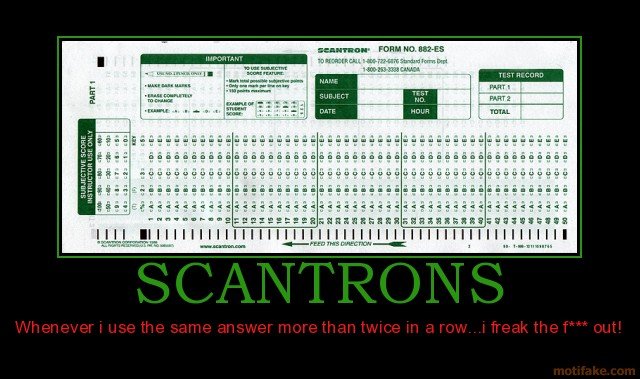Dexman PE PMP
Internationally PMP'n his PE-ness
Any time I get 3 of the same letter I was certain one was wrong. No proof, just my gut feeling, and when I checked my math on those 3 there would always be one that I changed.It was A when I took it. scared the crap out of me too. a run of 6-8 questions all with the same letter for the correct answer and I was certain of my selection too.






